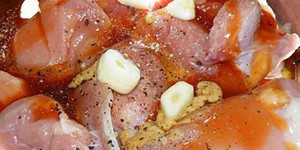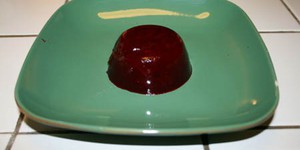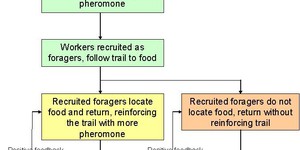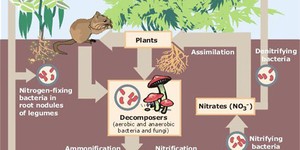Science Projects (1,332 results)
|
Select a resource
Sort by
|
If you like to fish and you'd rather not be telling the story of "the one that got away," then this is a project for you. What combination of properties makes for the best fishing line? Here are some suggestions for getting started on your background research into fishing line properties: knot strength, abrasion strength, shock strength, tensile strength, limpness, controlled stretch, and desired range of visibility (Dodson, 2006). Choose the properties that you think are most important, and…
Read more
Featured
Have you heard that garlic powder is supposed to inhibit the growth of bacteria? Which do you think would make a better disinfectant: a solution of garlic powder or a solution of bleach? This project shows you a straightforward way to compare the effectiveness of different disinfectants (or other antimicrobial agents), by measuring zones of inhibition on a culture plate.
Read more
Have you ever tasted a delicious burger and wondered how it got so much flavor? Maybe you have heard your family talk about marinating foods before cooking or grilling them. A marinade is a mixture of seasonings used to flavor or tenderize food. Most cooks have strong opinions about the best way to marinate their favorite food, be it a large steak or a tofu burger. In this cooking and food science fair project, you will run controlled tests to see what factors are most important in making a…
Read more
Floods can be very destructive, capable of leveling whole towns and decimating crops and fields. Typically in regions prone to flooding there are cycles of flooding that occur, usually in areas where a wet season comes after a period of drought. You can use precipitation data to test if incidents of flooding have been preceded by periods of drought. Look for long periods of dryness in the precipitation data to indicate a drought. You can also conduct an experiment on dry or moist soil to see…
Read more
When watching a football game, have you ever wondered why some kicks lead to a successful field goal and others do not? There are a lot of variables at play in a game of football, and many of them are related to physics. One variable that can affect whether a field goal is successful is distance. In this science project, you will explore how field goal success rate is affected by distance from the goalposts. What will be the best distance for you to kick some field goals? Grab a football, head…
Read more
Fresh whipped cream is the final touch for many delectable desserts. One issue with fresh whipped cream is that it has to be used soon after it is made, especially if it is at room temperature, or it starts to collapse into goo. This is a problem for its use in frostings or inside pastries as filler.
Whipped cream can be stabilized by adding unflavored gelatin. Stabilized whipped cream can be used at room temperature and it has a much longer life. But how much gelatin is just right? Try…
Read more
"Slurp...plop!" Recognize that sound? You might if your family usually serves jellied cranberries for the holidays. Jellied cranberries are thick, like gelatin, and retain the shape of the mold in which it was placed, which might mean Aunt Sue's turkey mold or even the shape of the can if you buy one of the popular canned versions. Taking a bite of wiggly jellied cranberries can be a fun addition to a delicious meal, but cranberries can also be served as a sauce. Both versions use the same…
Read more
Fruit is a strategy some plants use to attract animals to disperse seeds. The animals eat the fruit and disperse the seeds through the digestive system. To attract animals, fruit needs to ripen and develop an odor that acts as an attractant. How much more successful are ripe fruits at attracting animals? Try setting out an over and under ripe piece of fruit, and compare how many many insects are attracted to each fruit. How does ripening occur? You can do an experiment using a very ripe…
Read more
Germination is the process by which a seed emerges from the seed coat. Many different variables can effect the process of germination. Try to sprout seeds from different species of plant to see if different species vary in germination time. Are weeds faster germinators than vegetables? Try measuring seeds and then germinating them to see if big seeds sprout at a different rate than small seeds. Try sprouting seeds in different environments to test the effect of different environmental…
Read more
Have you ever stopped to watch a trail of ants moving back and forth between a food source and their nest? Have you ever wondered how they establish their trail? You've probably read that ants use chemical signals to communicate with one another. This is a relatively simple experiment that you can do to determine whether ants use attractant signals (positive cues) or repellant signals (negative cues) or both.
Read more
Everything on our planet is connected together, linked by a giant recycling system called the biogeochemical cycle. It is an amazing process. You can actually investigate how our planet recycles and reuses everything needed to support life by making a small model of the biosphere. What will be important to include in your miniature system so that it can support different types of life?
Read more
|








